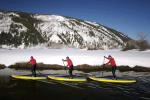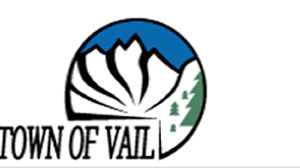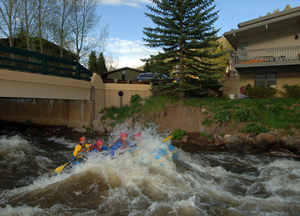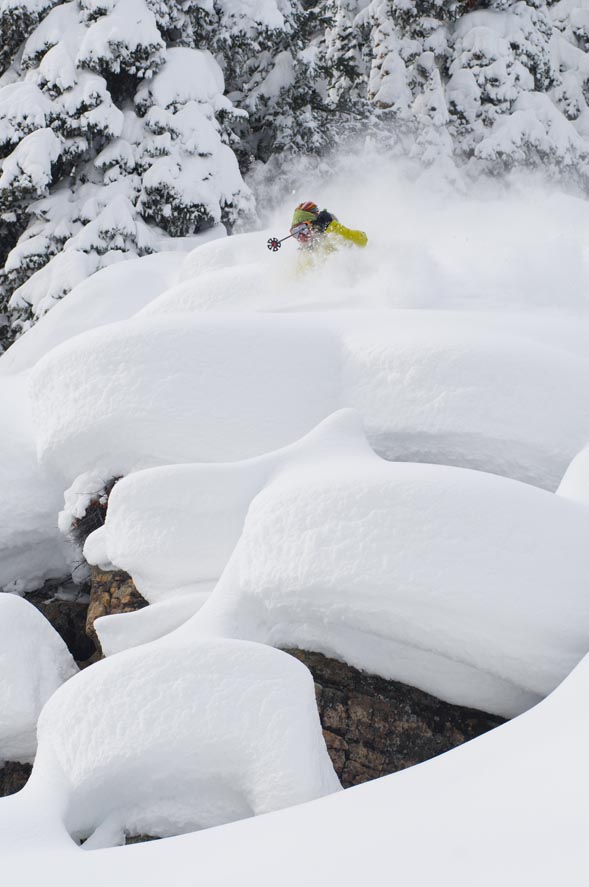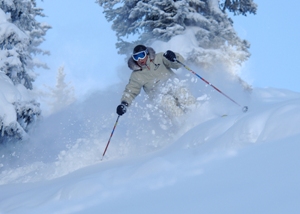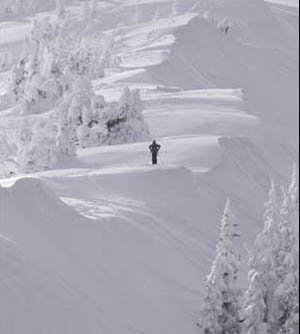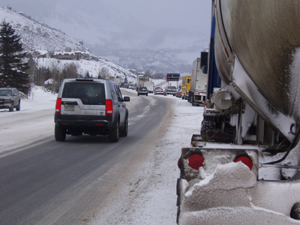
Special to realvail.com
- Recent town of Vail community survey identifies parking as top issue for townies
- Vail Christian High School board buys back bonds, rescues next school year
- Vail Resorts to host Lindsey Vonn celebration in Vail Wednesday, March 31
- Vail Resorts Epic Pass, Summit Pass available through November 30, 2009
- 9 candidates, including 3 incumbents, running for 4 Vail Town Council seats Nov. 3
- Nominating petitions for four open Vail Town Council seats available Sept. 14
- Eagle County commissioners to vote Tuesday on temporary marijuana dispensary regulations
- Vail Town Council rejects ballot question to change council terms
- Polis defends health-care reform at packed town hall in Edwards
- Vail blaze illustrates need for defensible space, roadless rule changes, state says
- All Real News Articles
June 6, 2008 — Vail’s Greg Moffet owns an advertising company that sells ads on buses in ski towns, so one would think he’d be a big fan of spending exorbitantly to expand mass transit in the mountains of Colorado.
But the former Vail town councilman and representative on the I-70 Coalition is fairly adamant that a ski train or some sort of mountain monorail along an increasingly congested Interstate 70 is an unnecessary, unfunded and ultimately unrealistic solution to weekend skier-traffic gridlock and economically crippling winter road closures.
“We can go a long way toward solving a lot of the issues that revolve around I-70 by addressing the fact that through truck traffic has increased at 15 percent a year since 1996,” said Moffet. He disagrees with those who say a tougher chain law had a big impact on the number of road closures involving semitrucks this past ski season.
The Colorado Department of Transportation last month approved use of a new high-tech textile fabric sock that wraps around the drive tires of semi-trucks and automobiles and is believed to provide better traction, including quicker starting and stopping, than conventional steel tire chains.
“This new sock technology is supposed to be cheaper and easier for truckers to use in lieu of chains, and they think that will help make a difference,” said state House Rep. Christine Scanlan, whose district includes two of the most heavily trafficked ski resort counties, Eagle and Summit, along the I-70 corridor.
Jackknifed semi-trucks, often driven by truckers from the southeastern or southwestern United States who are caught off-guard by snow squalls atop Vail Pass and the Eisenhower Tunnel virtually any month of the year, are often blamed for massive traffic snarls during peak ski-season weekends that can turn the 100-mile drive between Denver and Vail into a five-hour nightmare.
“You see them up at the top of pass disoriented from the altitude,” former Vail councilman Greg Moffet said, alluding to the 10,600-foot elevation atop Vail Pass. “They’re not from around here; they don’t know what’s going on.”
Greg Fulton of the Colorado Motor Carriers Association, a trucking lobby, said his organization does everything in its power to educate out-of-state truckers about Colorado’s potentially extreme driving conditions, through DVDs and CDs and other information they send to truckers around the nation, but part of the problem is the lack of safe places to chain up and the time it takes to put on steel chains.
Fulton said more and better places to chain up and down were added last winter along the I-70 corridor and even more spaces will be added this summer. But he agreed that one of the biggest breakthroughs next ski season may be the new AutoSock from Norway, which his group has thoroughly tested and wholeheartedly endorses. CDOT also tested the sock and gave its OK May 14.
The AutoSock uses “high-friction properties according to new theories on the effect of electrostatic charging and pressures on friction,” according to the company’s website, www.autosock.us.
The AutoSock goes on much faster than steel chains, which can take up to 40 minutes to put on if the trucker is inexperienced, and is much easier on the roads, according to Fulton, who adds that the AutoSock also doesn’t come off as easily as steel chains on dry roads, which can then pose a hazard for other drivers.
“I’m all for any device that will safely get these vehicles up the pass, keep them from getting stuck and have them travel in a safe manner,” said Colorado State Patrol Sgt. Shawn Olmstead, who’s patrolled Vail Pass the past five winters. “Chains are tearing the roads up and a lot of passenger vehicles suffer damage primarily to tires and wheels from running those things over.
“And I about rolled my SUV the other day driving down the road and hitting a pothole, and a lot of those are caused by the chains. Any new device that’s effective, I’m all for it.”
“Clearly not,” Moffet said, arguing fines need to be increased even more. “If it was a sufficiently sizable fine [as much as $2,000], I believe a trucker would have to think twice about trying to shoot Vail Pass without chains.”
Moffet's idea is one of many floated for years as a potential fix for I-70 as the major east-west thoroughfare connecting the Front Range to many mountain ski areas and further points west has grown increasingly, maddeningly clogged.
But Greg Fulton of the Colorado Motor Carriers Association, a trucking lobby, cites Colorado Department of Transportation statistics showing chain law fines that increased from $100 to as much as $1,000 this past winter definitely decreased the truck-caused closures.
“While overall closures were up on the corridor, truck-related closures were down, and I think they went down by 30 percent, so clearly we were doing some things out there that made a difference,” Fulton said.
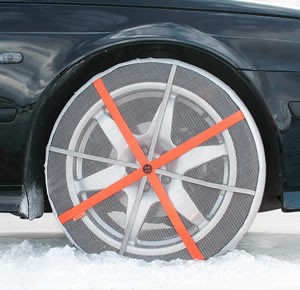
In fact, CDOT stats show the number of truck-related accidents on I-70 that completely shut down the highway in one or both directions were down from 19 during the winter of 2006-07 to just eight last winter -- a decrease of nearly 58 percent.
However, truck-related closures that shut down just one lane of the highway for a period of time were up from 132 for more than 115 hours in 2006-07 to 267 for more than 237 hours between September of 2007 and the beginning of April of 2008. And CDOT officials predict commercial vehicle traffic on I-70 will double in the next 20 years.
State Sen. Dan Gibbs, whose district includes the heart of Colorado ski country in Eagle and Summit counties, cites studies that for every hour I-70 is shut down it costs the resort region between $800,000 and $1 million in lost revenue.
It was Gibbs who last year introduced and successfully passed the higher fines of $500 for truckers who don’t chain up when the chain law is in effect and $1,000 for truckers who fail to chain up and then cause a lane or road closure.
Besides increasing the fines even more, Moffet suggests dissuading truckers from taking I-70 at peak times by putting variable message boards at key junctions in Utah and Nebraska and informing truckers of delays and bad weather along I-70. He also would like to see fees to travel I-70 over Vail Pass and through the Eisenhower Tunnel on Friday and Sunday evenings.
We’re going for the monster solution [rail] without trying some very reasonable intermediate solutions that are easy to try, and if they don’t work, the cost of doing them is modest and then you go on and decide to spend $50 billion [on rail],” Moffet said. “But I think the problem evaporates and you’ve saved $49.9 billion.”
Studies have actually put the cost of a mountain rail system along I-70 closer to $5 billion, but state Rep. Christine Scanlan, whose district includes Eagle and Summit counties along I-70, said even that amount will be tough to find in the current economic climate.
She believes more law enforcement cracking down on truckers who don’t chain up and other motorists driving too fast for the conditions is a more realistic short-term fix.
“They need additional law enforcement along the whole corridor stretching from Evergreen to Vail,” said Scanlan, who’s running for re-election in November. “That will be a focus of mine, assuming I get back in the Legislature next year.”
Colorado State Patrol Sgt. Shawn Olmstead, who’s been patrolling the stretch of I-70 through Eagle County and especially Vail Pass for the past five years, estimates trucker compliance with the chain law was at 60-70 percent the winter before with the $100 fines still in place and 90 percent this past season with the higher fines.
“The commercial motor vehicle traffic passing over I-70 into Denver is increasing annually, so we’re seeing a higher volume of trucks,” Olmstead said. “If the traffic would have stayed the same this year compared to last year, you would see nowhere near as many citations, but our truck traffic is increasing so we have more people who are not chaining up in general.”
The State Patrol handed out a total of 98 chain-law violation citations to truckers on Vail Pass this past winter, 25 for failure to comply resulting in a lane closure. That compares to 104 of the $100 tickets the winter before.
Olmstead said a key to getting more truckers to chain up is providing safe places for the truckers to chain up and chain down that are closer to the “snow zone” so truckers don’t have to drive long stretches on dry roads, which tears up the pavement and wrecks the steel chains.
While the highway may only be wet in Vail, which is at 8,150 feet, it’s often snow-packed at the top of Vail Pass, which is 10,600 feet in elevation. CDOT last summer added 160 spots for truckers to chain up along I-70 and is working to have between 600 and 800 total spaces by next winter, with better signage and lighting.
“You need to have places to safely do it,” Fulton said. “I don’t care what the fine is, if someone’s life is at risk because they’re two feet from the highway while they’re chaining up, that’s something they’re going to think twice about doing.”
A trucker was killed while chaining up along I-70 last year, and Fulton said many of the problems on the passes result from the aggressive driving of skiers and other motorist along the interstate.
“One of the reasons that we want the additional enforcement is that we find people are overdriving the corridor and putting not only themselves at risk but our drivers and others at risk,” Fulton said. “What I’m looking at is what others are going to do to improve the situation up there.”
![]() Comment on "Are truckers the biggest problem on Vail Pass, Interstate 70 corridor?" using the form below
Comment on "Are truckers the biggest problem on Vail Pass, Interstate 70 corridor?" using the form below





